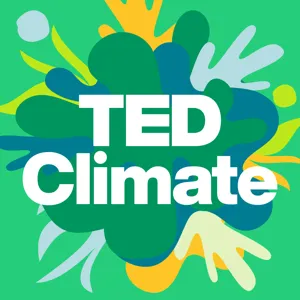Podcast Summary
On Track for Global Heating of at Least 3 Degrees Celsius: The climate crisis is causing unprecedented damage and disproportionately affecting the poorest populations. We need to act quickly and decisively to avoid catastrophic consequences, reduce inequality, and build a safer, fairer, and more resilient world.
The climate crisis is an urgent global issue that requires immediate action from all of us. As Antonio Gutierrez, the Secretary-General of the United Nations, emphasized in his talk at the Countdown Global Launch event, we are currently on track for global heating of at least 3 degrees Celsius above preindustrial levels, which is far beyond the limit of 1.5 degrees that science tells us is necessary to avoid the most catastrophic consequences. This crisis is causing unprecedented weather extremes, air pollution, and biodiversity loss, and it is disproportionately affecting the poorest and most vulnerable populations around the world. The richest 10% of the global population has been responsible for more than half of all carbon emissions, while the poorest 50% were responsible for just 7%. This level of inequality is unsustainable and threatens the future of humanity. The COVID-19 pandemic has shown us that when we come together and take bold action, we can make a difference. We have an opportunity to chart a new course and build a safer, fairer, and more resilient world, but we need to act quickly and decisively. To learn more about how you can get involved and take real climate action, check out countdown.ted.com and subscribe to the Countdown podcast.
Thousands of entities are committing to net zero emissions by 2050: Governments and private entities are taking action towards net zero emissions by investing, regulating, and collaborating, but more concrete plans and policies are needed from all countries to help vulnerable nations adapt and recover from COVID-19.
Urgent climate action is necessary and thousands of companies, cities, states, regions, universities, and investors are already committing to net zero emissions by 2050. Governments must join in by investing in green jobs, putting a price on carbon, taking climate risk into account, working together, and leaving no one behind. The European Union and China have made significant strides, but more concrete plans and policies are needed from all countries. Additionally, efforts must be made to help vulnerable countries adapt to climate impacts and recover from COVID-19, with developed countries meeting their commitment to provide funding for mitigation, adaptation, and resilience. The private sector needs regulatory frameworks to stimulate further climate action, and building resilience in vulnerable areas is crucial. Momentum is building, but more action is required from governments and the international community to reach carbon neutrality by 2050.
Discussing ways to accelerate climate action: Leaders are coming together online to discuss increasing climate commitments, commendable actions are appreciated but more progress is needed, and it's crucial for everyone to encourage greater climate ambition, particularly from governments.
We must all increase our efforts to address climate change and work together to build greater climate ambition. This December marks the fifth anniversary of the Paris agreement, and leaders from various sectors will come together online to discuss ways to accelerate progress towards the Glasgow Climate Conference in 2021. Those who have already taken steps to reduce their carbon footprint are commended, but more action and faster progress are needed. It's crucial that we all raise our voices and encourage governments, particularly those that need to do more, to increase their commitments to tackling climate change. And to those who have yet to join the fight, it's not too late. We can only win this race to net-zero emissions together, so let's all get on board and start moving in the same direction. The clock is ticking.






